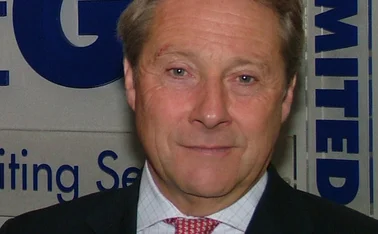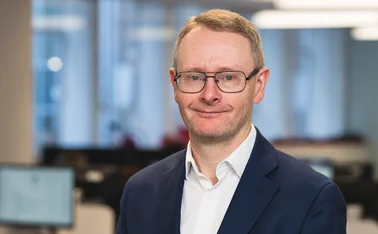
Broking success: Nothing to fear
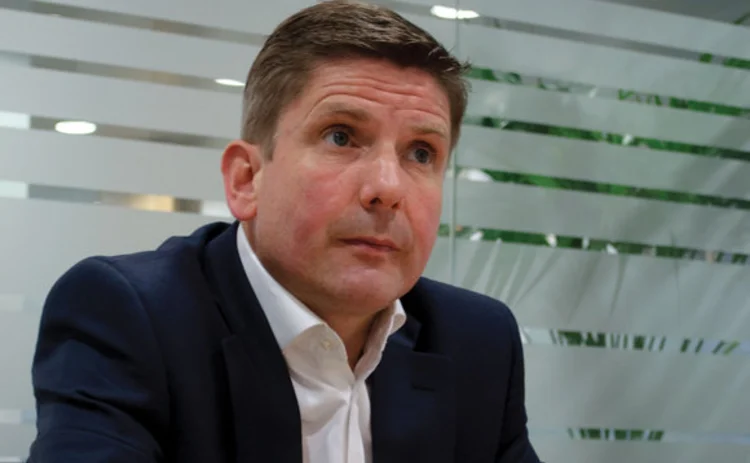
MD Stuart Rootham explains why a focus on organic growth rather than acquisitions was the right strategy for RK Harrison Insurance Services and why the broker is not afraid of the competition
▶ How long have you been involved with the business?
I’ve been with RK Harrison for 17 years. When I joined we were still owned by Hiscox, but there was a management buyout in 1999. I wasn’t quite at the grown-up table then but I’ve seen a lot of change in my time. It’s a very different company now.
▶ How has your role developed since joining?
I joined as an account executive in the commercial division and I always thought that there must be a more efficient way of doing the SME business. In those days it was very much still the old-fashioned face-to-face approach, whether it was a £1,000 or a £50,000 premium, the servicing wasn’t that different. I was interested in whether we could develop that and do more schemes business. Our chairman at the time had a relationship with a broker in America that did a lot of schemes business so we got introduced. We did some knowledge sharing which led to me effectively setting up a schemes division within RK Harrison in 1997.
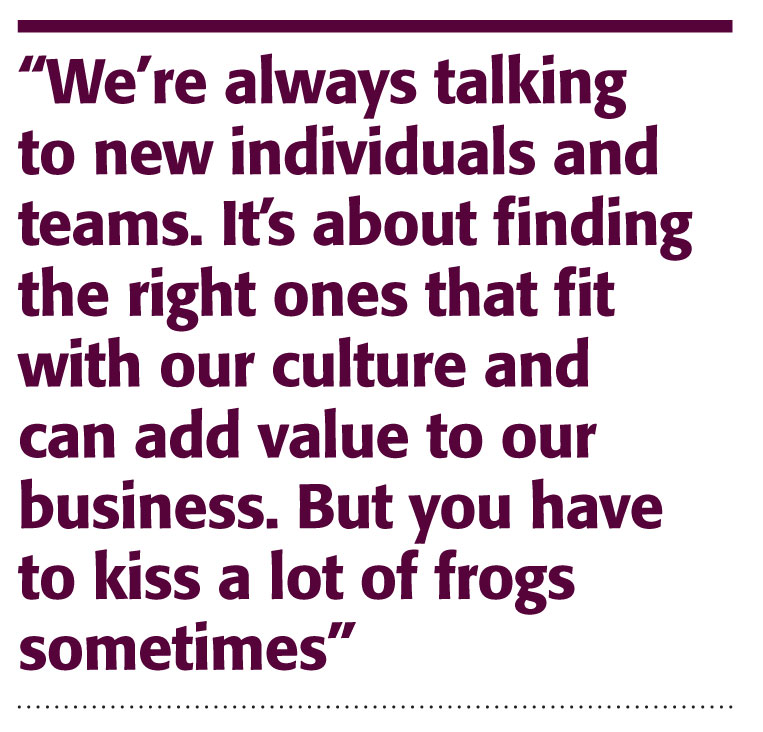 ▶ When did you join the board?
▶ When did you join the board?
In 2003, I was promoted to the board as head of commercial and schemes. In 2007, we changed the structure of the company and my role was very much to focus on product development, new initiatives, new schemes, new affinity relationships and so on. And then, in 2011, I was promoted to managing director of the UK retail business.
▶ What lines of business does RK Harrison operate in?
We’ve got seven trading divisions, and we put them under two broad headings of private wealth and commercial.
Private wealth has three component divisions: private client, which is very much a mid and high net worth (HNW) personal lines operation; the rural division, which is all things farms, estates and associated lines for anybody living or working in the countryside; and then we have a fine art division, ranging from private collections to galleries to exhibition transit risks. There’s a mixture of private and commercial but all of it in the fine art world.
Private wealth is about 60% of our overall business which is unusual – most independent brokers will be driven by commercial lines and they’ll tend to have a personal lines or a private client arm that is feeding off the commercial side of the business, whereas with us it’s the reverse in terms of size.
▶ What kind of commercial business does RK Harrison do?
On the commercial side we’ve got four divisions. One is corporate, which tends to be targeted at clients in the £10,000 to £100,000 brokerage fee income range. Those clients are spread all around the country with international elements as well. We don’t do a lot of SME, other than in certain trade-specific schemes. We also have a specialist professional risks team that joined us about three years ago from HSBC. That’s doing very well, it’s had good growth each year, and we’re very pleased with the way that’s developed.
Then we have a specialty risks team which includes a niche lines contingency business, which covers over-redemption, prize indemnity and things like that.
And the last one is real estate, which is a new team we recruited in December last year. We took on a team of four, they’re trying to build a book up from scratch and they’re doing very well.
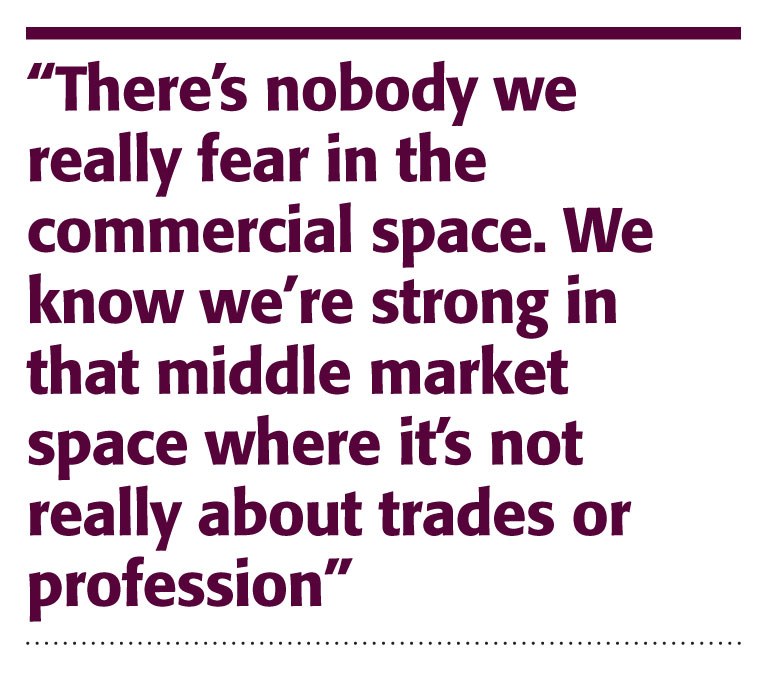 ▶ What broker did the real estate team join from?
▶ What broker did the real estate team join from?
That team came from a broker called Allanfield, which got into some difficulties and went into administration last year. We’re not a buyer of distressed businesses, that’s not what we’re about, but I knew one particular individual in that business. He had joined Allanfield nine months before the problems arose. So I’d been speaking to him at that time, and we ended up hand-picking a team of quality individuals.
▶ What approach does RK Harrison take towards acquisitions?
We’re always talking to new individuals and teams. It’s about finding the right ones that fit with our culture and can add value to our business. But you have to kiss a lot of frogs sometimes.
I guess we try to be specialist and look at where we can play strongest, use our specialist knowledge and capability to drive good organic growth but always keeping an eye open for bolt-on opportunities. We haven’t done a huge amount on the acquisition front. It’s something we continue to be alive to but we’re certainly not trying to be Towergate or any of those other consolidators, with that level of activity.
Certainly, if you look at the first decade of the 21st century, there was a plethora of activity for the likes of Towergate, Giles, Jelf and Bluefin. To a certain extent it felt like everybody else was out there doing deals and we were kind of heads down, continuing to focus on growing our business.
So we avoided that completely and, of course, at times in that process you think ‘Am I missing out, are we going to fall behind?’ But actually I would say, overall, if you look at some of the challenges facing some of those businesses, we can stand by our strategy – it was not the wrong one for RK Harrison.
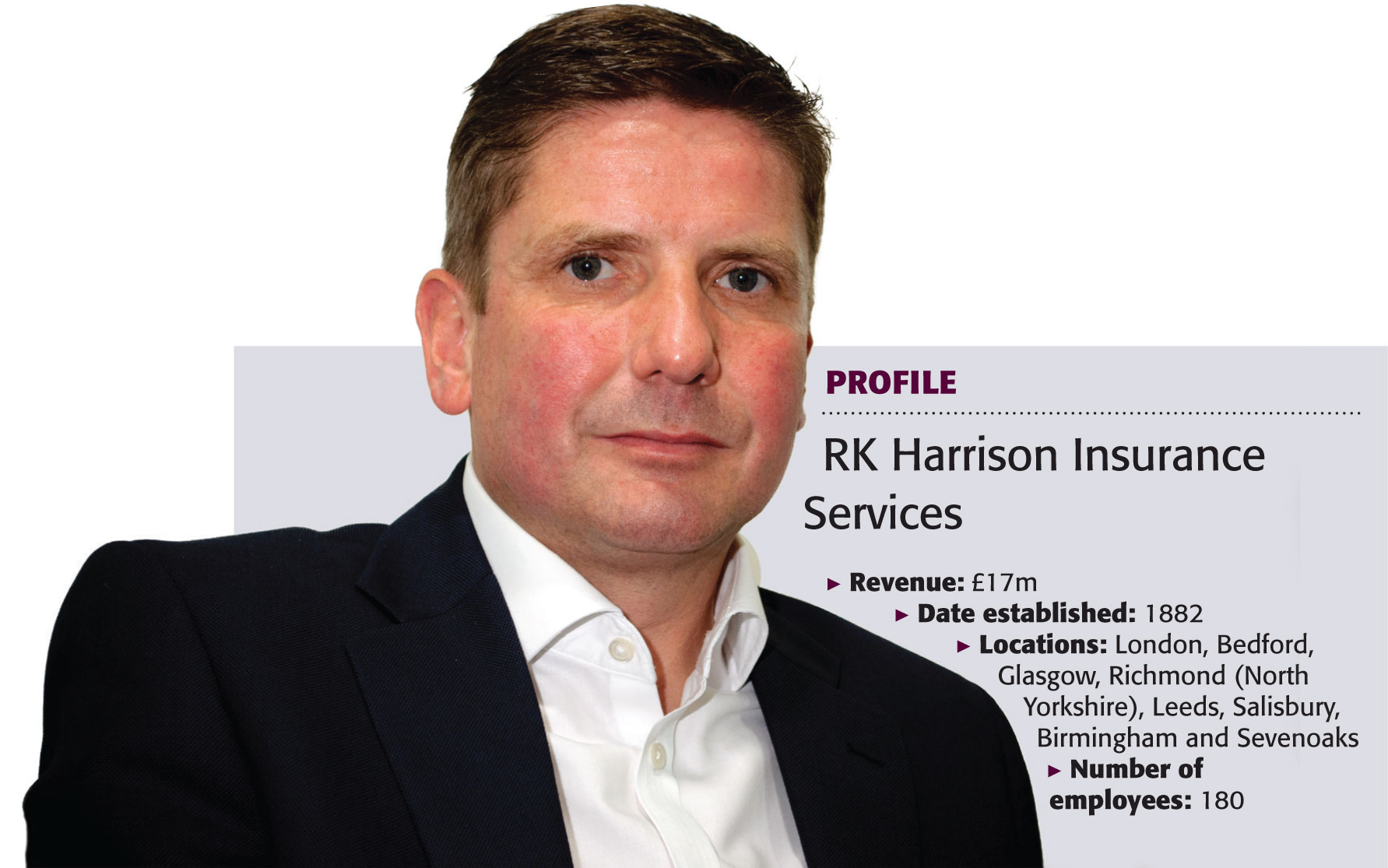
▶ Who are the company’s main competitors?
It really varies by division. Using the private client arm as an example, there aren’t many HNW specialists of the same scale [as RK Harrison], and that’s why I think we can genuinely say we’re a top three player. However, our peers would be brokers like Stackhouse Poland and Lark, they’re strong in the private client independent space. And, of course, you have the nationals like Aon and Marsh – they still have significant private client presence.
With rural, the main broker that would be similar to us is Lycetts. There’s nobody we really fear in the commercial space. We know we’re strong in that middle market space where it’s not really about trades or profession. We can work within that space where perhaps the really big brokers struggle to make sense of how they can deliver that service proposition for the £10,000 to £50,000 fee. Certainly some of the smaller brokers don’t have the expertise or range of skills to deliver as good a service to what would be a larger client for them, so we try to fit that space.
▶ Do you see the broking industry as a professional market and what would you change about it?
As an industry we need to better articulate the value we bring to our clients. There is a need for the clients to recognise that and not see insurance as a commodity purchase. Brokers need to have a better understanding themselves of what they need to be earning to adequately service a client. There’s nothing as dangerous as a stupid competitor. We often see situations where we’ve done a lot of work with a commercial client, we’ve measured costs scientifically, and then someone else will come in and do the job for a fee that makes no sense at all, but they’re blissfully unaware. Brokers have a duty to make sensible decisions and to raise industry standards in the eyes of our clients.
Only users who have a paid subscription or are part of a corporate subscription are able to print or copy content.
To access these options, along with all other subscription benefits, please contact info@insuranceage.co.uk.
You are currently unable to print this content. Please contact info@insuranceage.co.uk to find out more.
You are currently unable to copy this content. Please contact info@insuranceage.co.uk to find out more.
Copyright Infopro Digital Limited. All rights reserved.
You may share this content using our article tools. Printing this content is for the sole use of the Authorised User (named subscriber), as outlined in our terms and conditions - https://www.infopro-insight.com/terms-conditions/insight-subscriptions/
If you would like to purchase additional rights please email info@insuranceage.co.uk
Copyright Infopro Digital Limited. All rights reserved.
You may share this content using our article tools. Copying this content is for the sole use of the Authorised User (named subscriber), as outlined in our terms and conditions - https://www.infopro-insight.com/terms-conditions/insight-subscriptions/
If you would like to purchase additional rights please email info@insuranceage.co.uk
Most read
- In Depth: Managing cyber risk in an ever-changing security landscape
- Covéa cuts losses but underwriting deficit grows
- JMG strikes its biggest deal of 2024 with BQI swoop




